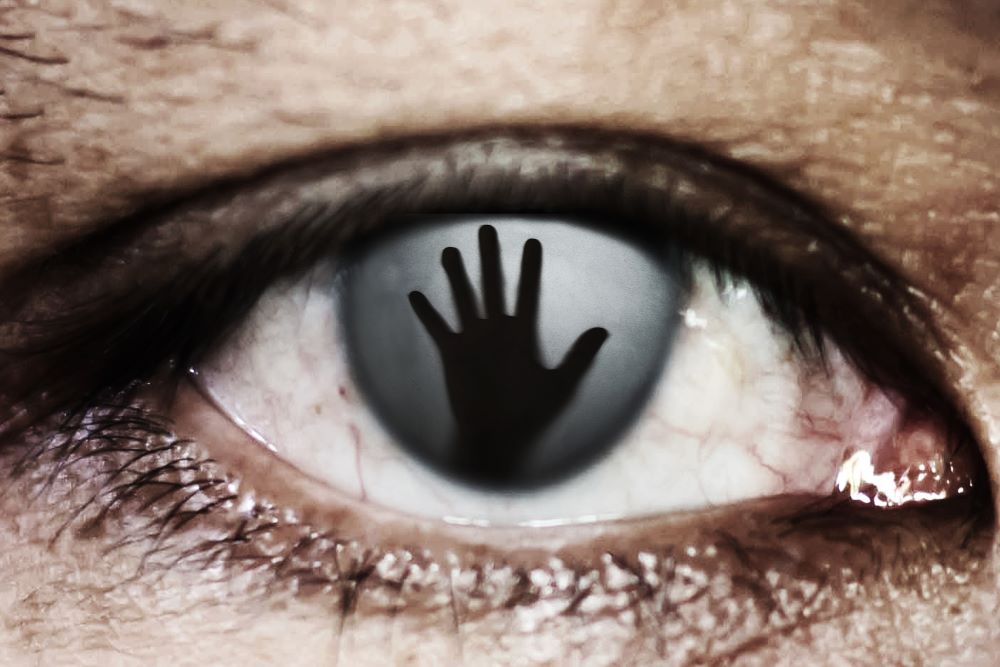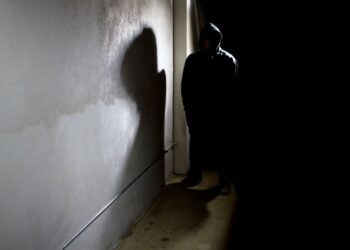There is a price of silence in crimes where knowledge and exposure can have severe consequences. When the victims are silent, whether because of their own fear or because of the inaction of others, the price can’t be measured in money.
Media attention has recently been focused on allegations of sexual misconduct levied against music mogul Sean John Combs (also known as Diddy, Puff Daddy, Puffy, and P. Diddy) and his resulting fall from grace. The saga began when Combs’ former girlfriend Cassie Ventura filed a civil lawsuit against him in November 2023, which contained graphic allegations of sexual abuse and rape. She claimed that many of the incidents were observed by Combs’ network of friends and associates, who did not intervene.
Ventura’s lawsuit was settled the day after it was filed. But after a slew of additional allegations surfaced over the coming months, Combs was ultimately arrested in September 2024 on sex trafficking and racketeering charges. He could now reportedly be facing over 100 civil lawsuits from alleged victims. Combs’ attorneys have denied the allegations against him and asserted that the settlement with Ventura was not an admission of any wrongdoing.
R. Kelly’s Case
While sexual assault cases have been brought against Bill Cosby, Harvey Weinstein and Jeffrey Epstein, the Combs case is similar to the charges and the conviction of Robert Kelly (known as R. Kelly) in 2019.
Kelly’s case largely involved underage victims. The accounts of sexual abuse went back to the start of his career in the 1990s when he discovered R&B sensation Aaliyah, who at the time was only 12 years old. During the recording of her debut album, Kelly would reportedly hang out with Aaliyah by going to arcades and bowling with her so he could spend time with her and get a perspective on how girls her age thought.
Aaliyah passed tragically in a plane accident in 2001. Her debut album “Age Ain’t Nothin’ But a Number” was largely written and produced by Kelly, who looms ominously on the cover. The content provided a unique insight into the grooming period of their relationship.
In addition to the lyrics of the title track, other songs on the album were focused on the theme of a younger girl pining for an older man, reinforcing the fantasy of the young victim being the one who desired the initiation of sexual contact by the perpetrator.
Unbeknownst at the time, Aaliyah and her family had been silenced by a non-disclosure agreement which prohibited them from discussing Kelly’s marriage and subsequent annulment to the singer when she was 15. However, the issue was addressed during the 2019 documentary series “Surviving R. Kelly,” during which it also came out that Kelly settled cases involving underage victims in 1998, 2001 and 2002. It wasn’t until 2017 when a former victim broke the terms of a non-disclosure agreement and revealed that Kelly had sex with her when she was underage, that things started to change.
The documentary is widely credited as the impetus for federal charges being filed. After a 2021 New York federal trial, Kelly was ultimately sentenced to 30 years in prison after being found guilty of eight counts of sex trafficking. Months later, he was convicted of child sexual abuse in a second federal trial in Chicago.
Kelly’s case, much like Combs’, is another perplexing example of a perpetrator engaging in egregious abuse repeatedly over a long span of time, seemingly unchecked until an avalanche of truth caused everything to cave in.
Psychological Dynamics of Sexual Abuse
Approximately one out of four girls and one out of six boys are sexually abused as minors. Research estimates that only 38% of child victims disclose sexual abuse, and of those disclosures, 40% are not disclosed to law enforcement. Of the disclosed incidents, 70-75% occur in the home, and roughly 20% are committed by a non-family member close to the child. Due to the underreporting and lack of reporting to police officials, statistics about the prevalence of child sexual abuse incidents are often inaccurate.
Because such crimes are rarely committed by a “stranger off the street,” in the majority of cases, child victims may fear coming forward because they are afraid of the impact on those around them. Victims may also fear that even if they do come forward, they won’t be believed. Child sex crimes involve an intimacy between perpetrator and victim, as well as a power dynamic where the perpetrator is in a position of power and authority over the victim.
Abusers often groom their victims not just through material items but through developing a bond of trust. Even victims who understand that the abuse is wrong on some level still feel a sense of loyalty toward the perpetrator and feel guilty about betraying the perpetrator by coming forward.
The other psychological dynamic at work in terms of how the conduct is perceived by society is that child sexual abuse simply isn’t something we want to think about. It’s easier to pretend it happens only to “other” people or in “other” communities, not our own.
Victim blaming is a common psychological phenomenon, but not for the reasons one may think. Humans are hard-wired to rationalize events in a way that separates us or our behavior from that of a victim. In this way, we feel safer because if we can rationalize that some other factor caused the abuse, we can convince ourselves that we (or our children) could never be victims.
Legal Challenges
Even for the small percentage of cases that get reported to law enforcement, the challenges don’t end there. Child victims are often viewed even by those closest to them as lacking credibility. Additionally, for perpetrators who have financial resources, many may opt to buy the victim’s silence through a non-disclosure agreement like the one Ventura executed with Combs and that Aaliyah and other victims executed with Kelly. This eliminates any chance that there will be criminal culpability for the abuse, which, in turn, often results in the perpetrator continuing to victimize others.
For the even smaller percentage of cases that result in criminal charges being filed, many alleged perpetrators remain out on bond until the time of trial. In these cases, roadblocks to the judicial process may include procedural delays and continuances, exposing a crucial window of time during which a survivor may decide to give up out of intimidation or feel an unrelenting need to move on with life and not have to continually focus on and relive the abuse.
To achieve successful prosecutions in these cases, the victim has to be willing to step forward and testify, and with each passing month, the fear and trepidation about facing the perpetrator may only intensify.
Due to the absolute secrecy with which child sex crimes are often committed, physical evidence and corroborative witnesses are rare. During the pendency of such cases, laws are designed to protect the offender as innocent until proven guilty and prevent any hindrance to their employment or community stature, which only serves to further the public perception that no wrongdoing has occurred.
For the perpetrator, life simply continues as usual. The psychological impact this has on victims cannot be understated.
The Safe Child Act and Constitutional Challenges
In other cases, the passage of time can be an equivalent barrier to justice. For some victims, the suppression of abuse is a survival mechanism that delays any ability to acknowledge it until they are safely into adulthood. Prompted by a growing body of psychological research illustrating how trauma impacts the ability of child victims to come forward, North Carolina recently passed laws increasing protections for child sexual abuse survivors.
On October 31, 2019, the NC General Assembly unanimously passed the SAFE Child Act. This law extended the statute of limitations from three years to 10 years from a sexual assault or abuse survivor reaching age 18, meaning survivors now have until age 28 to file a civil action. The SAFE Child Act also allowed prosecutors up to 10 years to pursue a misdemeanor criminal action for crimes like sexual battery, indecent liberties with a child, misdemean or child abuse, and failure to report child abuse. These statutory changes were an important step forward in ensuring that sexual abuse perpetrators can be held accountable.
Perhaps most controversial, the Act established a “revival window,” allowing child abuse victims who were barred by the prior statute of limitations a two-year window to file a lawsuit. This raised serious legal and liability implications not just for individual perpetrators but for organizations that were subject to civil liability due to failure to take corrective actions in preventing or reporting child sexual abuse.
North Carolina and states that passed similar legislation then faced constitutional challenges within the state court systems from institutions like schools and churches, claiming that the changes to the law were unconstitutional.
The NC Court of Appeals recently considered the issue in McKinney v. Goins. The Gaston County Board of Education asserted that the revival of plaintiffs’ claims for child sexual abuse under the SAFE Child Act was unconstitutional and violated due process rights outlined in the NC Constitution. The plaintiffs were wrestlers Goins had coached during his tenure at East Gaston High School.
Defendant Goins was a wrestling coach who physically and sexually abused a number of male victims during their pre-teen and teenage years. Although the board received a number of complaints alleging that wrestlers were being abused by Goins, these concerns were dismissed and no proper investigation, supervision or corrective measures were taken. Instead, Goins continued to abuse boys inside school facilities and while travelling for sporting events.
In 2014, Goins was convicted for myriad sexual abuse crimes perpetrated on the student wrestlers, including multiple accounts of statutory sexual offense, indecent liberties with a minor and sexual activity with a student.
The Court of Appeals upheld the “revival window” and opined that “Because adopting the Board’s position would require us to strike down as unconstitutional a duly enacted statute of our General Assembly and disregard the narrowly crafted legislation designed to address a stunningly pressing problem affecting vulnerable children across the state, we decline to convert an affirmative defense into a free pass for those who engaged in and covered up atrocious child sexual abuse.”
The case was appealed to the NC Supreme Court and heard along with four companion cases on September 18, 2024.
The Price of Silence
Goins, a teacher and coach for over two decades at East Gaston High School who consistently produced championship teams, was a trusted member of his local community. News reports during his 2014 criminal trial indicated he and his wife were also licensed foster parents who adopted three girls. Other parents, school officials and students testified in Goins’ defense. However, the trial revealed complaints about Goins from students and parents dating back to 2002, including written affidavits introduced at trial, which the district attorney vocally criticized school officials for not properly investigating.
While civil lawsuits in child sexual abuse cases have been criticized as financial incentivization for reporting, what this ignores is that even silence has a price. For victims, the price of silence is a secret shame from justice denied. Like Goins’ victims, many later suffer from post-traumatic stress disorder, anxiety and depression. This has an unquantifiable impact on their lives and those around them. For those who stayed silent while victims suffered, the price of silence goes far beyond the damage of the act itself and extends forward to future victims and the repetition of continued harm.
In many ways, the price of silence is a perpetual cost, permeating through all the future harm created by covering up the truth. True prevention of child sexual abuse requires more than just victims breaking their silence—it requires that individuals, institutions and communities stop remaining silent out of fear or deference to those in positions of power and authority.









